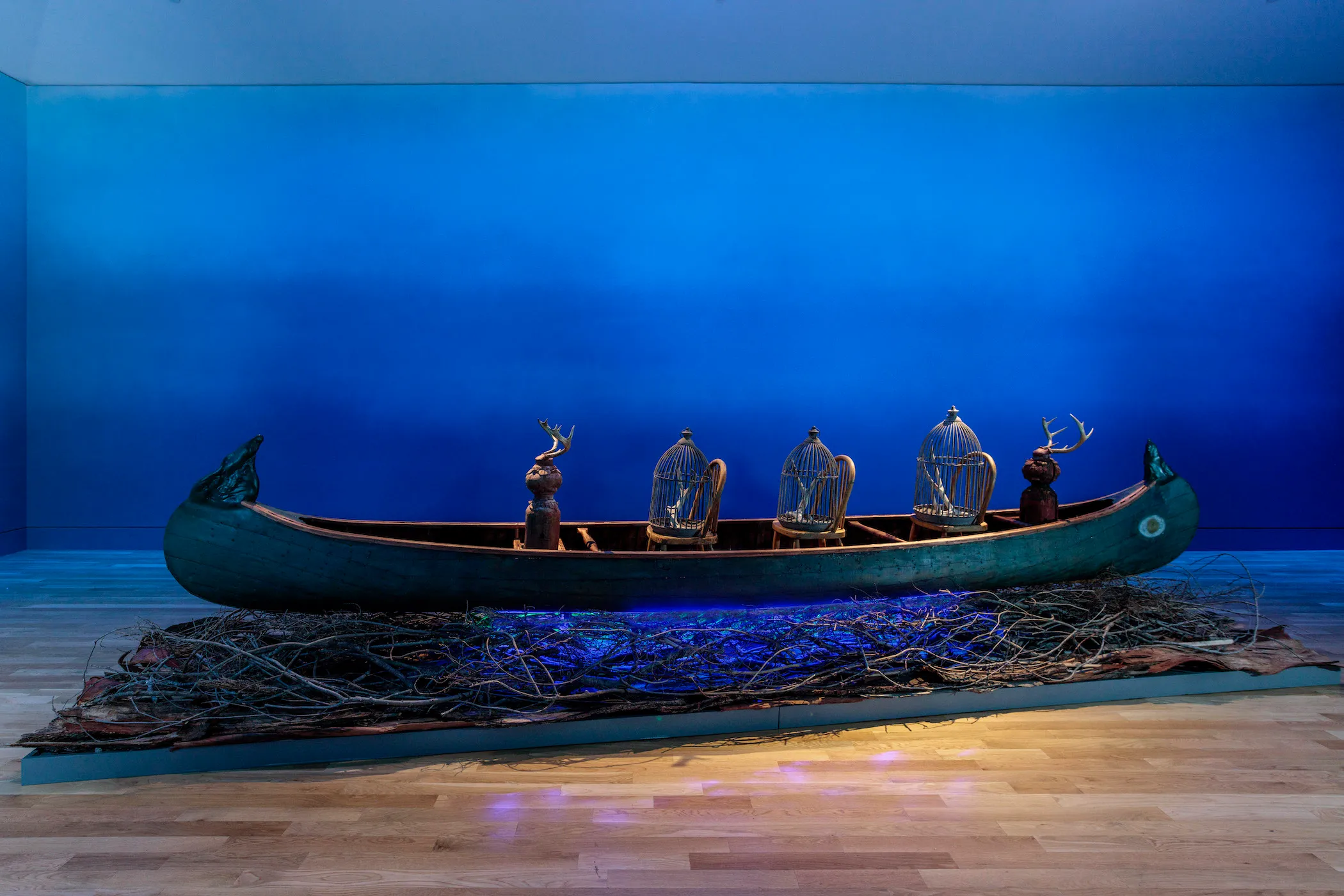F L A U N T


Los Angeles-born Betye Saar, paradigmatic American storyteller and assemblage artist, is widely revered for her work as a pioneer of the Black Arts movement of the seventies and for her ability to braid motifs of liberation with those of personal loss and love, using a fascination with the American occult and a keen eye for symbolism in the mundane. At the age of 97, Saar is still actively working: this month, Betye Saar: Drifting Toward Twilight will go on display at the Virginia Steele Scott Galleries of American Art, to be displayed for two years before becoming a permanent part of The Huntington’s American art collection. Commissioned by The Huntington Library, Art Museum, and Botanical Gardens, the multimedia exhibition will gravitate around a singular, large-scale, site-specific installation featuring a 17-foot-long vintage wooden canoe and found materials harvested by Saar from The Huntington’s sprawling grounds.

Drifting Toward Twilight represents a homecoming for Saar, who was raised in Pasadena and has many fond memories of visiting The Huntington as a child. The main installation evokes the cyclical nature of life– Saar turns an entire room into a “cocoon-like” environment by manipulating light and color, and maneuvers found objects into “passengers” in the canoe. The spacial and technical aspects of the installation produce a sense of strangely familiar enclosure–Saar's use of the known (canoe, found objects at the Huntington) allows visitors to orient themselves within a new space, while the tweaky twilight and human manipulation the natural world (twigs, branches, wood) births an eerie sense of displacement. The sensation produced keeps one at odds with oneself: Drifting Toward Twilight, like much of Saar’s work, finds foreign in the familiar, yet holds space for both. Alongside the installation, the Huntington will debut a short documentary directed by Kyle Provencio Reingold, featuring footage of the work in progress in Saar’s studio.
Additionally, The Huntington will publish a commemorative, eponymous book for the exhibition, which will add a new lens to scholarship about Saar relating to her early life in Pasadena. The book, set to be published next summer, will feature contributions from poet, playwright, artist, and longtime friend of Saar, Ishmael Scott Reed, as well as from Tiffany E. Barber, assistant professor of African American art at UCLA.
